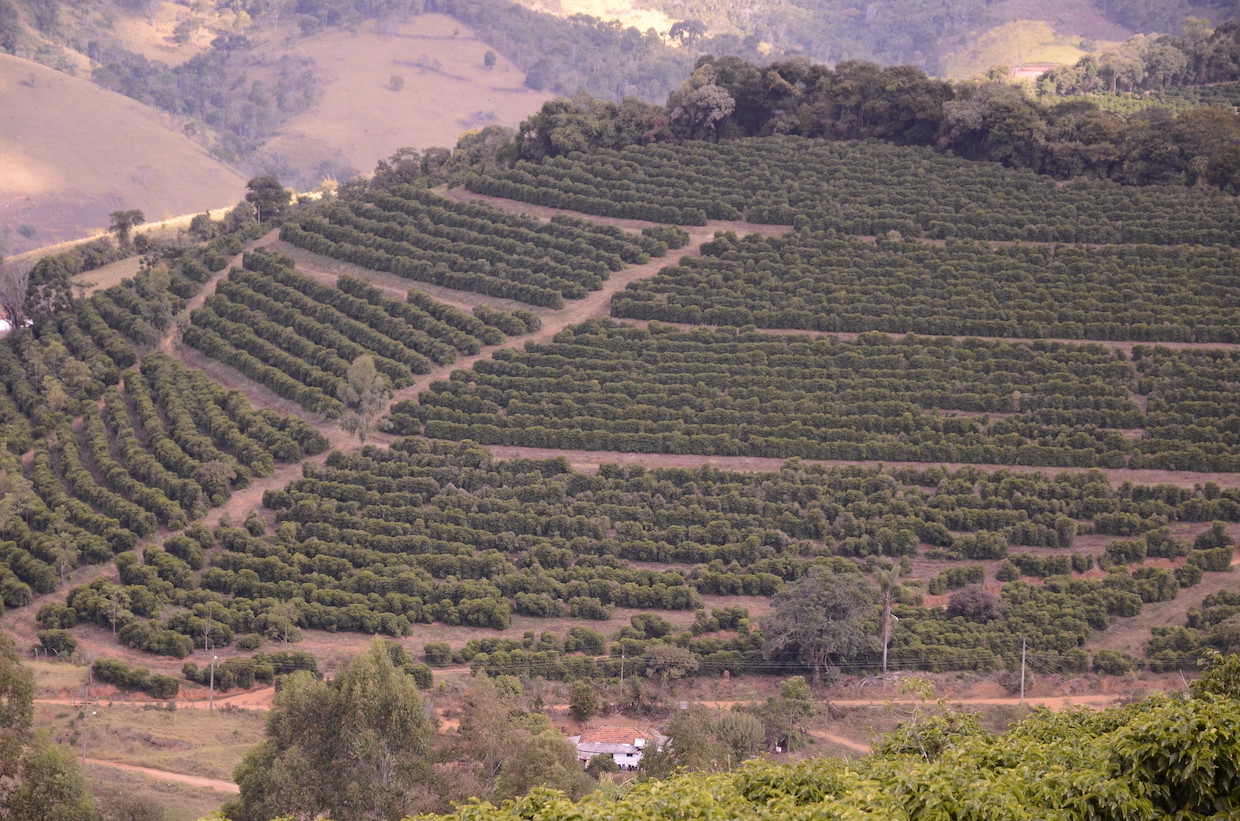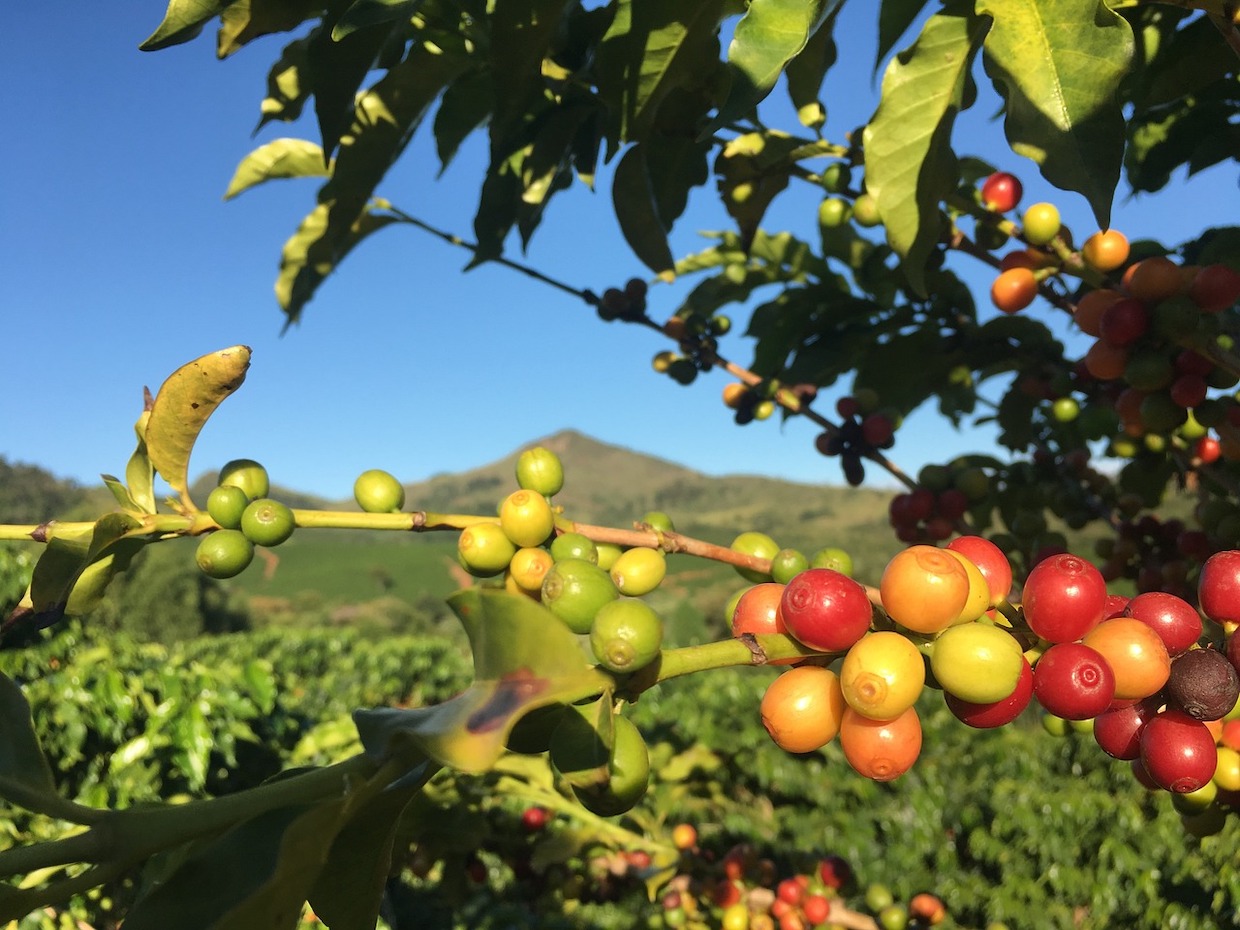
“Brazil Coffee Tour” by baristahoon is licensed under CC BY-SA 2.0.
New research suggests that agricultural certification, such as Rainforest Alliance, is not necessarily reducing deforestation or increasing plant cover among coffee farms in Brazil.
However, the same study found synergies between environmental legislation and certification, with environmental law compliance resulting in conditions that may naturally result in coffee land owners meeting Rainforest Alliance requirements.
“We didn’t observe a direct cause-and-effect relationship between certification and deforestation or natural regeneration, but certification can apparently serve as an additional incentive to comply with the legislation, confirming that the synergy has beneficial effects,” wrote study author Francisco d’Albertas Gomes de Carvalho, a postdoctoral researcher at the International Institute for Sustainability who was affiliated with the University of São Paolo at the time of the study.
With authors representing Brazil’s SOS Mata Atlântica Foundation and the University of São Paulo’s Luiz de Queiroz College of Agriculture, the study was recently published in the journal Biological Conservation and supported by Brazilian research agency FAPESP.
This study’s authors estimated that 20-40% of the world’s coffee farms bear some form of environmental certification. Given such prevalence, the research team set out to discover whether “agriculture is in fact becoming more sustainable as a result of certification” while also measuring environmental outcomes as they relate to federal environmental laws.
The issue of agricultural sustainability is especially pressing in Brazil, which is the world’s largest coffee-producing country while also facing a deforestation crisis.
“In Brazil, certification can be a worthwhile tool to strengthen compliance with the Native Vegetation Protection Act, also known as the Forest Code, given the lack of interest among landowners and weak enforcement by the government,” D’Albertas wrote.
The research team observed more than 500 coffee farms in 84 municipalities in the states of São Paulo and Minas Gerais, with 172 of those farms in the Atlantic Rainforest eco-region and 362 of the farms classified as the Cerrado eco-region, a savanna-like biome.
“In these areas, where coffee has been produced for decades, there’s no deforestation to speak of, especially compared with the scale of ongoing deforestation along the agricultural frontier in the Amazon, or in parts of the Cerrado where soybean plantations are expanding,” D’Albertas said.
However, the study conversely found that non-certified farms, especially those in the Atlantic Rainforest eco-region, were exponentially more likely to naturally meet Rainforest Alliance certification benchmarks through their compliance with environmental law.
Thus, the study suggests landowners in compliance with environmental laws might be well-suited to achieve Rainforest Alliance certification, especially if it can result in price premiums.
On the flip side of that coin, the study notes that certifiers, such as Rainforest Alliance, should work to align with government agencies and other actors invested in environmental stewardship to increase synergies with local laws and enforcement.
“Our results suggest that within consolidated landscapes, certification agencies could reinforce convergencies with local environmental legislation, by identifying the weaknesses of such legislation and facilitating compliance among landholders,” the authors wrote. “By increasing farm profit, for instance, certification schemes can at least partially account for the social costs of changes and thus promote vegetation conservation in agricultural landscapes.”
Read the full study here.
Does your coffee business have news to share? Let DCN’s editors know here.
Nick Brown
Nick Brown is the editor of Daily Coffee News by Roast Magazine.
Comment
1 Comment
Comments are closed.







It is intriguing to see how agricultural certifications like the Rainforest Alliance might not have a direct impact on reducing deforestation or increasing plant cover on coffee farms in Brazil. Nevertheless, the synergies between certification and environmental legislation compliance are a promising avenue to explore further. By aligning their efforts with local environmental laws and enforcement, certification agencies can potentially help make agriculture more sustainable and promote vegetation conservation. It is essential for all stakeholders involved to work together to ensure that these certifications deliver on their environmental promises and contribute positively to the preservation of our planet’s ecosystems. I feel sad to enjoy coffee
so much.